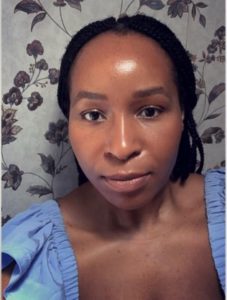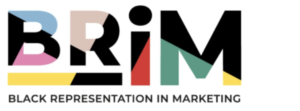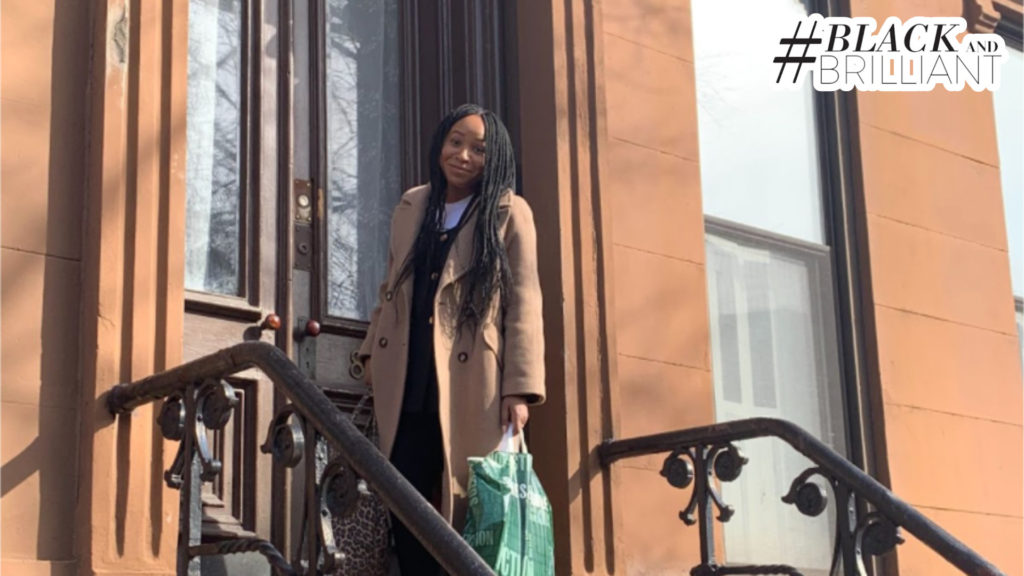What Does Black History Mean To You?
As a co-founder of The Black & Brilliant Advocacy Network, my signature mission encompasses a combination of advocating for Black and Brown people, shining a light on that talent and a continuous celebration of those who manage to break through. So it’s hardly surprising to see I have embraced similar elements when it comes to Black History Month.
Black history permeates every aspect of our lives, including the way we live. I’m currently in the process of designing and renovating our Brooklyn Brownstone – that I share with my husband, Co-founder of B&BAN & Global Managing Director at Google Tony Effik, and our three young children. We collect art, books, music and antiquities from across the diaspora – it enriches our lives. We get a lot of joy from it and how our children interact with it. We feel very lucky!
I see myself as a Global Citizen. So when I think of Black History Month, I can’t help but take a global view of Black History. I was born in West Africa, in Cameroon’s capital – Yaounde, grew up in South West London, but now live in NYC and settled in Clinton Hill’s historic district, Brooklyn with my family.
For me Black History is not limited to just one month – February in the United States, and October in the UK. For me, it’s a celebration that spans 365 days of the year, multiple continents and multiple parts of history. There is so much to celebrate, I find it hard to pack it into one month. There’s something fascinating and enriching for everybody.
When I see how Black History is represented I suffer from a kind of cognitive dissonance – what I know about our history is rarely reflected in what I watch and read. Black representation is so important, which is why the work of BRiM is so important now for the generations that come after.
How Do You Celebrate Black History Month?
The easiest way for me to celebrate Black History Month is through my everyday life. Black History Month is a celebration of people, art, architecture, music, food and stories passed down from generation to generation. I’m always on the lookout for new ways to bring that joy and celebration into everything I do. The most important thing is to expand your range. Although slavery and the Civil Rights Movement are key parts of Black History, they are not the totality of the history. Let’s expand our gaze from the typical narrow (and dare I say, White) gaze. There is so much more.
What Parts of Black History Do You Like The Most?
Going to school in the UK meant there was no formal education in Black History despite the 500 hundred years of shared history between Africa and the UK – from pre colonial trade to Empire and then Commonwealth. I think the only time it was covered was around Egypt, but no mention of the other great Nile Valley civilisation of Nubia, in current day Sudan. They also built pyramids, and the origins of Pharaonic Egypt lie within miles of their border. Nobody is taught of the great Kushite Pharaohs such as Taharqa, who led an Egyptian-Kushite army to defeat the Assyrians and save the young kingdom of Israel in 701 B.C.E. Black history did not begin in 1619, it began at the Dawn of Man – around 200,000 years ago.
 None of my school teachers ever told me about the rich Black history I later discovered. That includes – Mansa Musa – known as the medieval world’s richest man. The ninth Mansa (King) of the Mali Empire, one of the most powerful states in West Africa and the world during his reign. The legend of Mansa Musa spread across the ancient world, and his legend led to a scramble to track down his Kingdom and wealth across Europe and the Middle East. Few also know of his uncle, Abu Bakr, the previous Mansa who abdicated his throne to lead an expedition to explore the Great Sea (The Atlantic) and some believe he landed in the Americas.
None of my school teachers ever told me about the rich Black history I later discovered. That includes – Mansa Musa – known as the medieval world’s richest man. The ninth Mansa (King) of the Mali Empire, one of the most powerful states in West Africa and the world during his reign. The legend of Mansa Musa spread across the ancient world, and his legend led to a scramble to track down his Kingdom and wealth across Europe and the Middle East. Few also know of his uncle, Abu Bakr, the previous Mansa who abdicated his throne to lead an expedition to explore the Great Sea (The Atlantic) and some believe he landed in the Americas.
The lack of female heroines in history books is also a problem for me. Queen Nzinga Mbandi – ruler of not one, but two kingdoms was a fearless warrior and queen – in modern day Angola.Nzinga was a skilled negotiator and outstanding military general who fought against the Portuguese and the expanding slave trade in South Western Africa.
A favourite of mine in the Western Hemisphere is Toussaint Louverture – a Haitian general and the most prominent leader of the Haitian Revolution. During his life, he fought against the French for the cause of Haitian independence. Making Haiti the first country to gain independence from a colonial power.
Then there is the remarkable Frederick Douglass and one of my husband’s heroes. Douglass was an African-American social reformist and advocate. After escaping from slavery in Maryland by tricking his enslavers into teaching him how to read. Once free he became a national leader of the abolitionist movement in Massachusetts and New York, as well as a supporter of Irish rights during exile in Europe.
Marus Garvey was a Jamaican political activist and the founder/first President-genereal of the Universal Negro Improvement Assosiation (UNIA). The UNIA aimed to achieve Black nationalism through the celebration of African history and culture.
How Should Businesses Participate in Black History Month?
I’m seeing a slight shift in attitudes and a reduction in emotional capacity from what we saw at the height of the social justice movement during the summer of 2020 – sparked by the death of George Floyd. This Black History Month will be a real tester of commitment and sincerity.
Last year during Black History Month, we saw too many brands signalling their support of Black History in social posts that were like tick-box exercises. They did this at the same time they were running campaigns that included no Black People, and with teams that included no Black people in them. Sincerity and authenticity are not tick boxes. It shows up as a lack of emotional commitment and maturity from brands. Ultimately you will end up contradicting yourself and your work. Engage with Black History Month with passion, but also live to the spirit of it through the rest of the year.
More often than not, history has a way of repeating itself, and when people start to feel the pinch they also start to re-evaluate where they want to spend their time and energy. Oh! And let’s not forget we are still in the midst of a global pandemic, with new variants every 3 or 4 months. Not to mention, high inflation and a volatile stock market. So my biggest tip to corporations is to be human first – lead with empathy and be open to being part of that change. Also consider building relations with your community and consumers alike.
Authenticity is like labelling yourself as organic – it may take a little more effort in the short term but the long term benefit will be manifold. Avoid campaigns that are solely created through a narrow gaze. Consistency is key!
What Does B&BAN Have Planned For 2022?
We have New Year’s resolutions as well at The Black and Brilliant Advocacy Network, which includes more of a focus in 2022 on better connecting our community and allies around the world in marketing, media, and technology. We plan to do fewer, but bigger projects.
We launched in South Africa at the end of last year, and now plan to build on our partnership with Codecademy with an AI Accelerator Africa. We believe we can help trigger a wave of innovation in technology by coaching small groups of ambitious and smart young people across the continent, and networking them to thought leaders in our network. We also plan to deepen our partnerships with BRiM. Watch this space for new initiatives coming this year. We are proud of what we are doing together.
Follow us on:





